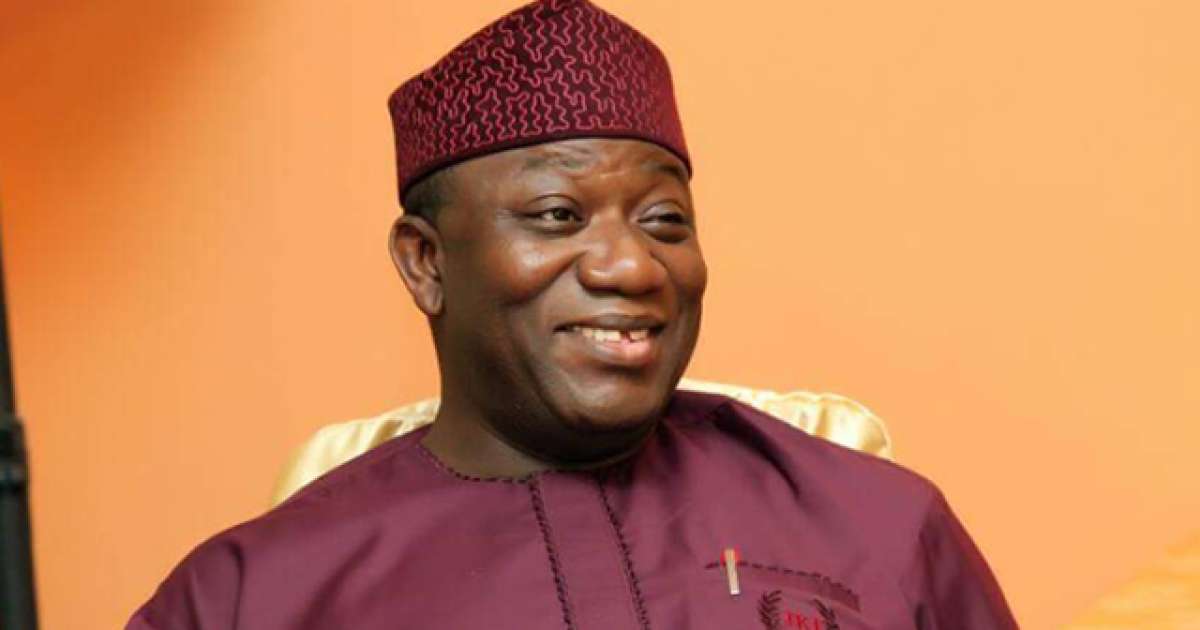COVID-19: Nigeria To Get 80m Doses Vaccine In 2021- Governors
The thirty- six State Governors under the aegis of the Nigeria Governors’ Forum, NGF have disclosed that the country in this year, 2021, will get a total delivery of 80 million doses of COVID- 19 vaccines to cover 40% of the nation’s population, while another 60 million doses are being planned for next year, 2022.
Disclosing this on Tuesday, at Chatham House London, the UK at a Virtual event, Chairman of the NGF and Ekiti State governor, Dr. Kayode Fayemi said that beyond the procurement of Vaccines by the Federal government, the State Governors are also strong proponents of the utilisation of public-private partnerships in vaccines procurement as a means of closing the gap between what is available and what is necessary to achieve immunity.
Fayemi spoke on the ‘Role of Nigeria’s State Governments in Recovery: Responses to COVID- 19 Linked Challenge”
The governors have however urged the Federal Government to as a matter of urgency adopt an approach that would make it move away from emergency response to strengthening the resilience and sustainability of the health system.
Fayemi said, “We expect about 80m doses of vaccines would be available in 2021 to cover 40% of the population, while another 60m doses are being planned for 2022. Beyond the government’s procurement of vaccines, we at the NGF are also strong proponents of the utilisation of public-private partnerships in vaccine procurement as a means of closing the gap between what is available and what is necessary to achieve herd immunity.
“As we already know, vaccines themselves are not cost-effective, but rather immunisation is. To ensure people are immunized, State Governments have a role to play in supporting the logistics and ensuring people get the vaccines.
“As we look forward to recovery from the impact of the COVID 19 pandemic, our approach must shift from emergency response to strengthening the resilience and sustainability of our health system. We must task ourselves and rethink existing assumptions and facts around financing and delivery of health care in a manner that guarantees we build back better.
“In the medium to long term, we must begin to think strategically about the future of public health security and therefore explore the potential of in-country manufacturing of approved vaccines, following technology transfer.
The pandemic is a good reminder of the implications of public health outbreaks on national security. We must take the leap and gain a better level of independence, in the area of vaccine research and development but also in science generally. On the Current response, Fayemi said, “When Nigeria reported its first case in late February 2020, only four laboratories in the country could test for COVID-19. By October 2020, testing capacity had expanded to over 70 laboratories across the 36+1 States. The scale-up of laboratory services was important given the size of the country and the need to rapidly obtain results for suspected cases. As at December 2020, more than 45,000 health workers have been trained across the country on infection prevention and control measures. “These preventive actions are important given that a major priority in the country’s response is to break the chain of transmission individually and collectively through adherence to public health and social measures.
“On the economic front, our major priority is to secure livelihoods. National monetary and fiscal policy reforms must align to support improvements in household income. Working with the Federal Government, a number of employment creation programs have been created and currently being implemented.
The Central Bank of Nigeria (CBN) has played an important role here and we must commend them. Intervention funds have been made available with interest rates below inflation, in the hope that we can stimulate the growth of small and medium scale businesses. Similarly, institutions such as the Bank of Industry and Bank of Agriculture have also given moratoriums on existing loans to ease the burden of payment.”
Speaking on what the Federal and State governments have done so far, the NGF Chairman said, “Nigeria was very pro-active in handling the first wave and continues to remain so. Prior to the confirmation of the first case on the 27th of February 2020, the country actively monitored events around the world, with a public health advisory published by the Nigerian Centre for Disease Control (NCDC) a month before the first confirmed case in the country.
“A presidential task force was established to coordinate the multi-sectoral response to the pandemic while a public health emergency operation centre was established under the NCDC.
In March 2020, the country’s airports were closed with the exception of essential flights and inter-state movements restricted in order to minimise the spread of the virus. “On the health front, about $20m was made available to support the Nigerian Centre for Disease Control (NCDC) at the outset to scale its capacity to adequately respond to emerging issues.
“The private sector in Nigeria harnessed their strengths to establish the Coalition Against COVID-19 (CACOVID), which launched in March 2020 to support the Government’s control efforts.
“Raising more than $75m, CACOVID has provided medical supplies and equipment, tests, isolation and treatment centres for individuals with COVID-19. In addition, under its food relief program, essential food materials were donated to vulnerable persons across all States to cushion the effect of the lockdown. “States also followed suit, responding to the pandemic by addressing the health and economic impact.





